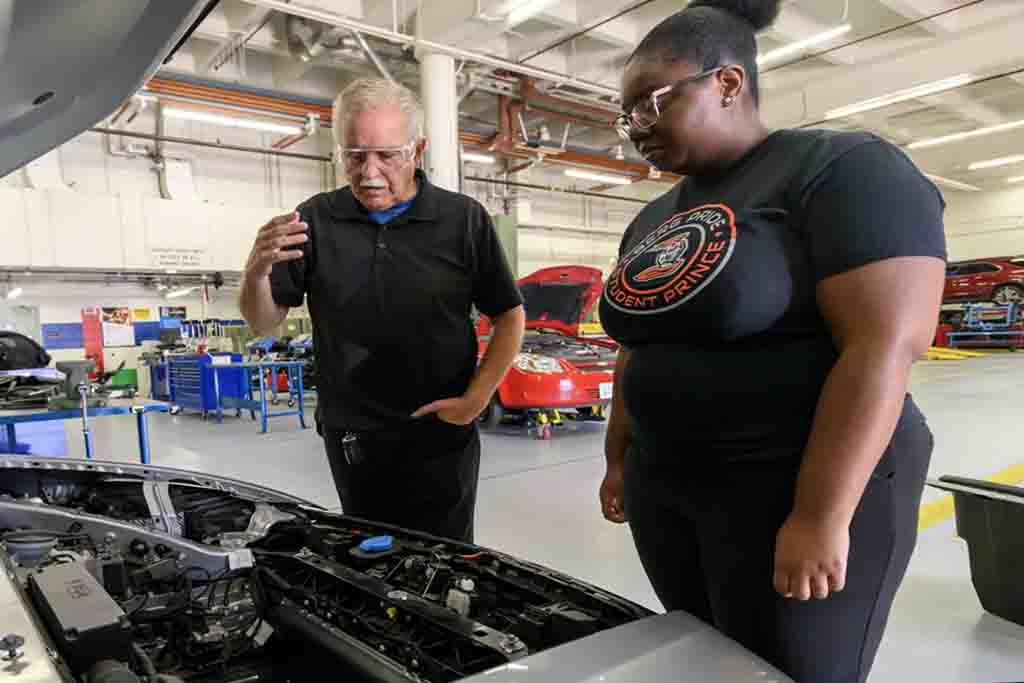Michigan, the heart of America’s auto world, is buzzing with tension. Governor Gretchen Whitmer recently met privately with President Donald Trump to plead for a tariff rethink, arguing that current policies are jeopardizing thousands of jobs in her state. It’s a high-stakes conversation that’s spotlighting the fragile balance between protectionism and global trade. Here, we’ll explore the details of their talk, the impacts on Michigan’s economy, and what this means for the future of U.S. manufacturing. If you’re in the auto sector or just care about American jobs, this is essential reading.

Inside the Whitmer-Trump Meeting
The meeting was discreet, but details leaked: Whitmer used slides to show how tariffs on steel, aluminum, and Chinese parts are hammering Michigan’s auto giants like GM, Ford, and Stellantis. She warned of up to 600,000 jobs at risk, emphasizing that costs are soaring – 50% on steel, 30% on parts. Trump, a tariff champion, listened but hasn’t budged publicly.
This isn’t new; Trump’s administration imposed these duties to boost domestic production, but critics say they’re backfiring. Michigan, with its supply chains tied to Canada and Mexico, feels the pain acutely. Whitmer’s push is part of a broader executive directive to assess tariff impacts on costs.
As someone who’s driven through Detroit’s factories, I see the human side. Workers worry about layoffs, families about mortgages. It’s not abstract policy; it’s livelihoods.
Tariffs’ Toll on the Auto Industry
Tariffs aim to protect U.S. steelmakers, but autos rely on imports. Costs rise, passed to consumers – a new car might cost $1,000 more. Exports suffer too, with retaliatory tariffs from trading partners.
Michigan’s economy: Autos employ 1 in 10 workers. Recent plant idlings, like Stellantis cuts, link directly to these pressures. EVs add complexity; battery parts from China face hikes, slowing green transitions.
Pros: Some domestic suppliers boom. Cons: Global competitiveness dips. Trump bets on bringing jobs home, but Whitmer argues it’s hurting more than helping.
The Broader Debate: Protectionism vs. Free Trade
This clash echoes historical debates. Tariffs can shield industries but often lead to inefficiencies. In 2025, with inflation cooling, easing them could stimulate growth.
Political angle: Michigan’s a swing state. Whitmer’s Democrat stance contrasts Trump’s GOP base. Any change could sway voters.
Global view: Allies like Canada push for relief under USMCA. If unresolved, supply chains might shift elsewhere.
Paths Forward for Michigan and Beyond
Whitmer wants exemptions or reductions. Trump could adjust via executive order. Long-term: Invest in domestic sourcing, retrain workers for EVs.
For businesses: Diversify suppliers, lobby for changes. Workers: Upskill in tech-heavy roles.
In summary, Michigan’s auto crossroads highlights tariff trade-offs. Whitmer’s plea might spark change – or deepen divides. Watch this space; jobs hang in the balance.